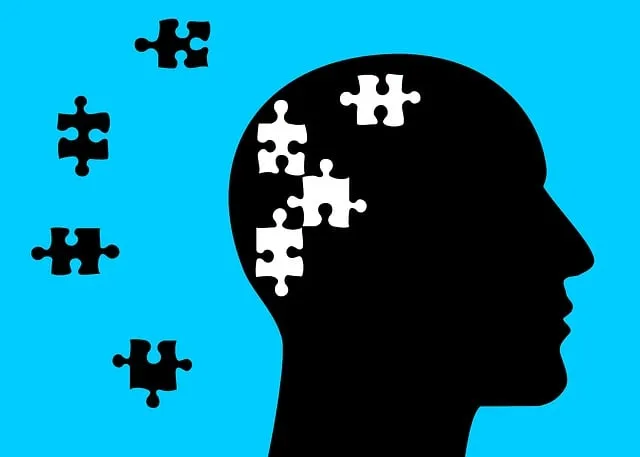The stigma surrounding mental illness poses a significant barrier to care, particularly for marginalized groups in Arvada. While Kaiser offers comprehensive mental health services, their effectiveness is challenged by lingering stigma. Overcoming this through cultural sensitivity and initiatives like Mindfulness Meditation can create an inclusive environment. Kaiser's current efforts, including Mental Wellness Journaling and Emotional Intelligence education, are positive steps, but more accessible programs could further reduce stigma and encourage wider support-seeking. Education, awareness, and open dialogue are powerful tools in destigmatizing mental illness, with organizations like Kaiser leading the way to a more compassionate society.
Mental illness stigma remains a significant barrier to individuals seeking help, perpetuating isolation and hindering recovery. This article explores various facets of stigma reduction efforts, from understanding its profound impact on mental well-being to evaluating initiatives like Kaiser’s role in combating it. We delve into effective strategies for communities, the power of education and awareness, and the necessity of creating supportive environments. Additionally, we examine whether Kaiser’s offerings in Arvada meet the growing need for accessible, stigma-free mental health services.
- Understanding Stigma: Its Impact on Mental Health Seeking Beings
- Kaiser's Role in Combating Stigma: Does Their Offer Meet the Need?
- Effective Strategies for Reducing Mental Illness Stigma in Communities
- The Power of Education and Awareness: A Tool Against Stigma
- Supportive Environment Creation: A Step Towards a Stigma-Free Society
Understanding Stigma: Its Impact on Mental Health Seeking Beings

Stigma surrounding mental illness can have profound effects on individuals and communities alike. It often acts as a barrier to those seeking help, leading many to suffer in silence. The impact is especially significant for marginalized groups, where cultural beliefs and societal norms may exacerbate existing challenges. For instance, in areas like Arvada, where Kaiser offers comprehensive mental health services, breaking down stigma becomes crucial to ensuring equitable access to care.
Cultural sensitivity in mental healthcare practice plays a pivotal role in this effort. By fostering understanding and empathy, healthcare providers can create safe spaces that encourage open dialogue about mental wellness. Techniques such as mindfulness meditation have also proven effective in reducing stigma and promoting self-care. These practices not only empower individuals to manage their mental health but also contribute to building more inclusive communities where everyone feels supported and valued.
Kaiser's Role in Combating Stigma: Does Their Offer Meet the Need?

Kaiser, a prominent healthcare provider in Arvada and beyond, has initiated efforts to combat mental illness stigma by offering various services and programs. Their commitment to addressing this issue is commendable, as stigma often prevents individuals from seeking necessary support. Kaiser’s approach includes providing education on mental health, promoting open conversations, and offering specialized treatments. However, the question arises: does their current offer meet the growing need?
While Kaiser’s initiatives are a step in the right direction, some critics argue that more could be done to cater to diverse populations. For instance, incorporating accessible programs like Mindfulness Meditation, Social Skills Training, and Stress Reduction Methods might bridge the gap for those who prefer alternative therapeutic approaches. By diversifying their offerings, Kaiser can ensure a more inclusive environment, encouraging a broader range of individuals to take advantage of available mental health services in Arvada.
Effective Strategies for Reducing Mental Illness Stigma in Communities

Stigma reduction is a key aspect of Kaiser’s mental health services in Arvada, aiming to create a more supportive and understanding community for individuals dealing with mental illness. Effective strategies include Mental Wellness Journaling Exercise Guidance, which encourages open dialogue about personal experiences and challenges associated with mental health, fostering empathy and breaking down barriers. By providing a safe space for expression, this approach helps to normalize conversations around mental wellness.
Furthermore, Emotional Intelligence plays a pivotal role in stigma reduction. Educating communities on recognizing and managing emotions can lead to improved Communication Strategies, enabling individuals to seek help without fear of judgment. Encouraging active listening and compassionate dialogue ensures that those facing mental health struggles feel supported and empowered to take charge of their well-being. These efforts collectively contribute to a more inclusive environment, where mental illness is met with understanding rather than prejudice.
The Power of Education and Awareness: A Tool Against Stigma

Education and awareness are powerful tools in the battle against mental illness stigma. By implementing programs like the Mental Wellness Podcast Series Production and Community Outreach Program Implementation, organizations can reach a wide audience, dispel myths, and foster empathy. These initiatives play a crucial role in normalizing conversations around mental health, encouraging individuals to seek support without fear of judgment.
Kaiser, for instance, offers comprehensive mental health services in Arvada, highlighting the importance of education in reducing stigma. Through Stress Management Workshops Organization, they empower individuals with coping strategies and promote self-care, ultimately reducing the societal isolation often associated with mental illness. Such efforts contribute to a more understanding and supportive community where everyone can access the care they need.
Supportive Environment Creation: A Step Towards a Stigma-Free Society

Creating supportive environments is a pivotal step towards reducing the stigma surrounding mental illness in our society. Organizations like Kaiser, known for offering comprehensive mental health services in Arvada and beyond, play a crucial role in this endeavor. By fostering inclusive spaces that prioritize open conversations about mental wellness, they help dispel myths and promote understanding. These efforts extend to workplace settings where employers are increasingly recognizing the importance of implementing Risk Management Planning for Mental Health Professionals, ensuring staff have access to resources and training to support their own well-being and that of their clients.
Promoting mental health awareness through initiatives such as Mindfulness Meditation and Mental Wellness Podcast Series Production also contributes to this goal. Such programs encourage individuals to prioritize their mental wellness, break down barriers, and seek help without fear of judgment. Collectively, these strategies are instrumental in shaping a stigma-free society where mental illness is met with compassion and support rather than isolation and shame.
Mental illness stigma reduction is a multifaceted approach that requires community engagement, education, and supportive environment creation. While organizations like Kaiser play a significant role in providing mental health services, such as those available in Arvada, their impact on stigma is limited unless accompanied by widespread awareness initiatives. By combining efforts through effective strategies, we can foster understanding, reduce prejudice, and create a more inclusive society where individuals affected by mental illness are supported without fear of judgment. This collective effort is essential to ultimately eradicating the barriers that prevent those in need from seeking help.






